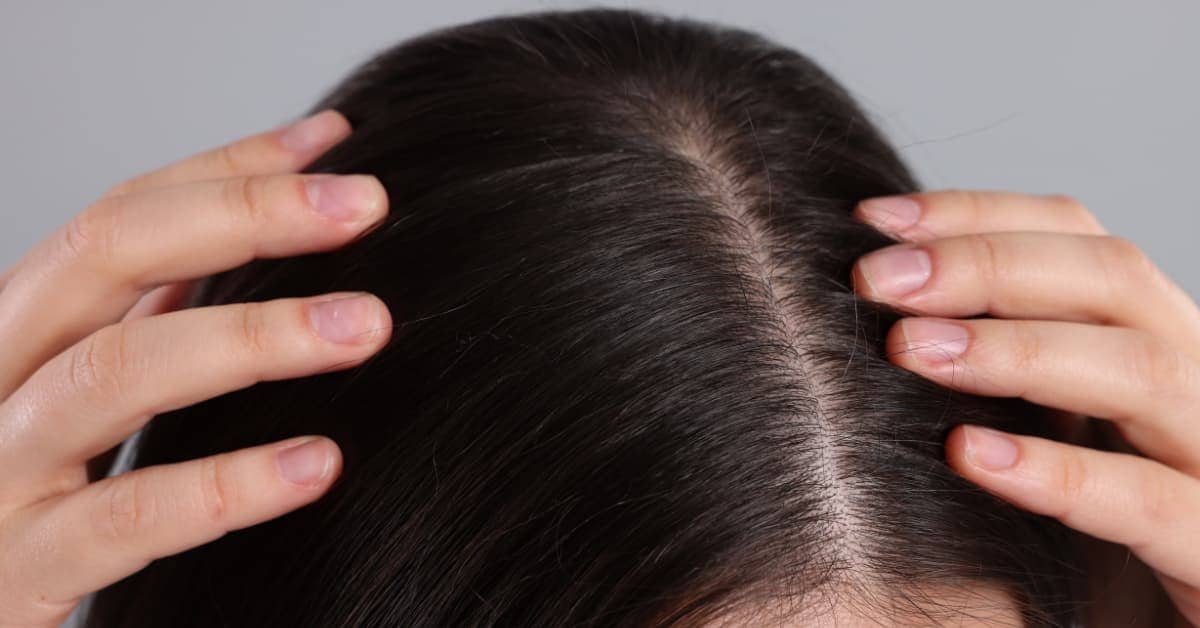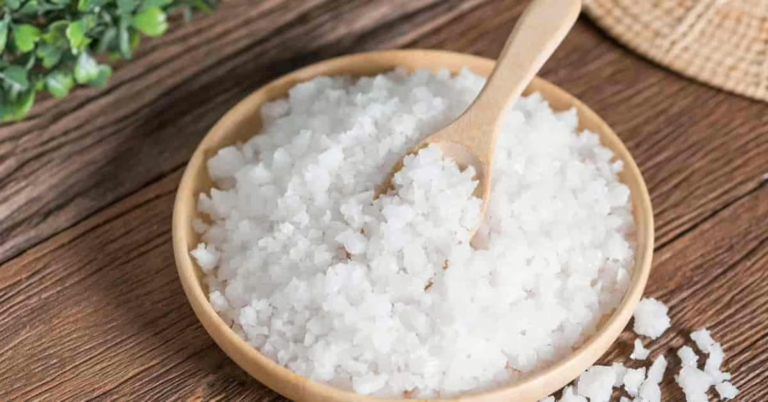How to Effectively Use Rosemary Oil for Hair Growth and Scalp Health
Rosemary has long been known as a culinary herb that adds flavor to dishes, but it offers so much more—especially when it comes to hair care. This versatile herb has a range of impressive benefits for promoting hair growth and maintaining a healthy scalp. Rosemary oil is known for stimulating hair follicles by increasing blood flow to the scalp, ultimately strengthening strands from the roots.
By improving circulation, Rosemary oil not only fosters hair growth but also contributes to a healthier scalp environment. It effectively moisturizes the scalp, reducing dryness and flakiness, while also soothing irritation caused by dandruff or inflammation. For those experiencing thinning hair or looking for natural solutions to promote hair growth, Rosemary oil stands out as a promising ingredient in various hair care routines.
With its antioxidant, anti-inflammatory, and antimicrobial properties, Rosemary oil supports overall scalp health. The oil, derived from the Mediterranean Rosemary plant, is a pale liquid with a fresh, herbaceous scent, often used in hair care products for its ability to invigorate and restore. It’s not just about adding shine; Rosemary oil deeply nourishes the scalp, setting the stage for healthier, stronger hair.
Adding Rosemary oil into your hair care routine can be as simple as adding a few drops to your shampoo or using it as a scalp treatment. With consistent use, this powerful oil offers a natural way to strengthen hair, reduce breakage, and encourage growth. Whether you’re dealing with thinning strands or simply want to enhance your hair’s vitality, Rosemary oil could be the solution you’ve been looking for.
Explore the benefits of Rosemary oil and discover its ability to transform your hair care routine. By taking advantage of its natural properties, you can create a scalp environment where your hair can truly thrive.
Rosemary Oil Benefits for Hair
- Boosts Hair Growth: Rosemary oil is highly regarded for its ability to promote hair growth. It contains carnosic acid, a compound known to repair nerve and tissue damage while stimulating cellular turnover. This enhances nerve function and improves blood circulation, both of which are critical for healthy hair growth. Proper blood flow ensures that hair follicles receive the nutrients they need to thrive. Without these nutrients, follicles may weaken, leading to hair thinning or loss. Rosemary oil has also been compared to well-known hair growth treatments, showing similarly positive results in encouraging fuller, thicker strands. For anyone looking to enhance hair density, Rosemary oil is one of the most effective natural remedies available.
- Soothes Scalp Irritation: Another key benefit of Rosemary oil is its anti-inflammatory properties, making it ideal for soothing irritated scalps. It can help alleviate itching, often experienced by those using chemical-based hair treatments. The oil’s natural soothing abilities create a healthier scalp environment, which further supports hair growth.
- Helps Prevent Hair Loss: Rosemary oil is rich in antioxidants that combat free radicals—unstable molecules that damage cells and, over time, can weaken hair follicles. By neutralizing these free radicals, Rosemary oil protects the hair follicles and reduces the risk of hair loss, helping maintain thicker and stronger hair.
- Reduces Dandruff: With its ability to increase blood flow to the scalp and eliminate bacteria that can clog hair follicles, Rosemary oil may reduce dandruff. This cleansing action helps to prevent flakiness and promotes a healthier, cleaner scalp.
- May Slow Down Graying: The damage caused by environmental factors can accelerate the aging process, including hair graying. By fighting off free radicals that contribute to oxidative stress, Rosemary oil may slow down the appearance of gray hair, helping to maintain your natural color longer.
What to Know Before Using Rosemary Oil for Hair Care
Rosemary oil has gained significant popularity for its remarkable ability to promote hair growth and improve scalp health. However, before including it into your hair care routine, there are a few essential considerations to ensure its effectiveness and avoid any unwanted effects.
- First and foremost, Rosemary oil is highly concentrated, making it necessary to dilute it with a carrier oil, such as argan oil or jojoba oil, before applying it directly to the scalp. Applying undiluted essential oils may cause irritation, especially for those with sensitive skin. A proper blend ensures that you still gain all the benefits of Rosemary oil without the risk of discomfort.
- For individuals seeking stronger, healthier hair, pairing Rosemary oil with other nourishing ingredients can further amplify its results. Look for hair care products that combine Rosemary oil with ingredients like peptides, ginseng, and plant-based stem cells, all of which promote scalp health and optimize the function of hair follicles. These combinations help create an environment where hair can grow stronger and thicker, providing a multi-faceted approach to hair care.
- Understanding how to properly use Rosemary oil is key to achieving long-term results. Diluting it with a carrier oil and using complementary ingredients can offer a balanced, holistic solution for anyone facing hair thinning, dryness, or a weakened scalp. By ensuring you apply it correctly and pairing it with other hair-strengthening ingredients, you can optimize your hair care routine and see visible improvements in hair thickness and scalp health over time.
How Long Should You Keep Rosemary Oil in Your Hair?
When it comes to using Rosemary oil for hair growth and scalp health, timing is key. For those seeking stronger, longer hair, experts recommend leaving Rosemary oil in your hair for at least 30 minutes to reap its full benefits. This allows the oil to deeply nourish the scalp, stimulate blood circulation, and strengthen hair follicles. You can even extend this time by using it as a leave-in treatment, applying the oil to your scalp and hair and covering it with a shower cap for an enhanced, soothing effect.
However, while Rosemary oil is known for its many advantages, there’s a fine balance to strike. Leaving it on for too long—especially overnight—may lead to scalp irritation in case of sensitive scalp. The scalp’s delicate microflora can become disrupted, leading to itchiness and redness. This is a common issue for those experiencing scalp sensitivity or using oils in excess. While it’s tempting to let the oil work its magic longer, it’s essential to find the right duration that suits your scalp’s needs.
For individuals dealing with thinning hair, dandruff, or an itchy scalp, Rosemary oil can be a powerful addition to your routine, but moderation is crucial. Applying it for just the right amount of time can deliver lasting benefits without causing discomfort, helping you achieve the fuller, healthier hair you desire.
How Long Does It Take to See Hair Growth Results with Rosemary Oil?
When using Rosemary oil for hair growth, patience is key. While it offers promising benefits, the results won’t be immediate, and it can take some time to notice a difference. Hair growth is a gradual process, and while Rosemary oil supports healthier follicles, individual responses vary. For most people, it may take six months or more of consistent use to see noticeable changes. Keep in mind that each person’s hair growth cycle is different, so persistence is essential.
Who Can Use Rosemary Oil?
Rosemary oil is suitable for all hair types because it works on the scalp and hair follicles rather than the hair strand itself. Whether you have thick, fine, curly, or straight hair, Rosemary oil can support your hair health from the roots. It’s even safe for use on color-treated hair, as its application should be focused directly on the scalp.
However, for those with sensitive skin, it’s important to be cautious. If you’re unsure how your scalp might react, a patch test is recommended. Apply a small amount of the diluted oil to a patch of skin and wait 24 hours to check for any irritation before full use. Also, when applying the oil, be mindful of its direction, tilting your head back to prevent the oil from getting into your eyes.
If you’re pregnant or breastfeeding, it’s advisable to avoid Rosemary oil, as there is no concrete data regarding its safety in these conditions.
How to Use Rosemary Oil for Hair Loss
Rosemary essential oil is a powerful natural remedy for hair loss, and there are a few effective ways to incorporate it into your routine. Whether you’re looking to strengthen your strands, encourage hair growth, or simply improve scalp health, here are some easy methods to get started. For beginners, it’s recommended to try these treatments once or twice a week and increase frequency as you become more comfortable with the process.
1. Direct Scalp Massage – One of the simplest ways to use Rosemary oil is by massaging it directly into your scalp. Start by mixing about five drops of Rosemary essential oil with a teaspoon of a carrier oil, such as jojoba or coconut oil. After a bath or shower, apply the mixture evenly to your scalp, massaging it gently to ensure even coverage. You can choose to leave the oil in for added nourishment or rinse it out after letting it sit for at least 5 to 10 minutes. This method stimulates blood circulation, which can help revitalize hair follicles and promote hair growth.
2. Add to Your Hair Products – For a more integrated approach, you can mix Rosemary essential oil into your regular hair care products. Whether it’s shampoo, conditioner, hair masks, or styling products, simply add about five drops of Rosemary oil per ounce of product. Continue using the products as you normally would, but now with the added benefits of Rosemary oil working to strengthen your hair follicles and enhance scalp health.
3. Add to Homemade Shampoo – If you’re into DIY beauty products, consider adding Rosemary oil to your homemade shampoo. Many natural shampoo recipes include ingredients like baking soda, coconut oil, and essential oils. Rosemary oil can be a great addition for anyone looking to boost hair growth and maintain a healthy scalp. Its antibacterial and anti-inflammatory properties can further cleanse and soothe the scalp, setting the foundation for stronger, fuller hair.
These methods provide a versatile approach to incorporating Rosemary oil into your hair care routine. Whether you prefer a simple scalp massage or adding it to your favorite products, Rosemary oil can be a powerful ally in your journey toward healthier, thicker hair.
To sum up
Rosemary oil is a powerful natural solution for promoting hair growth, but consistency and patience are required. Its unique ability to target hair follicles makes it an ideal option for those seeking fuller, stronger hair, while its safety for all hair types makes it versatile for a wide audience.







